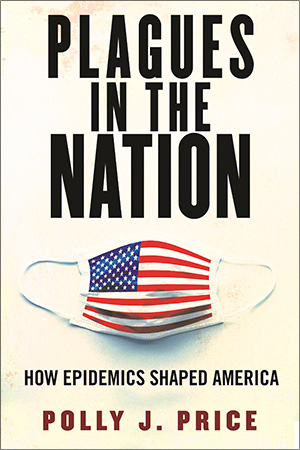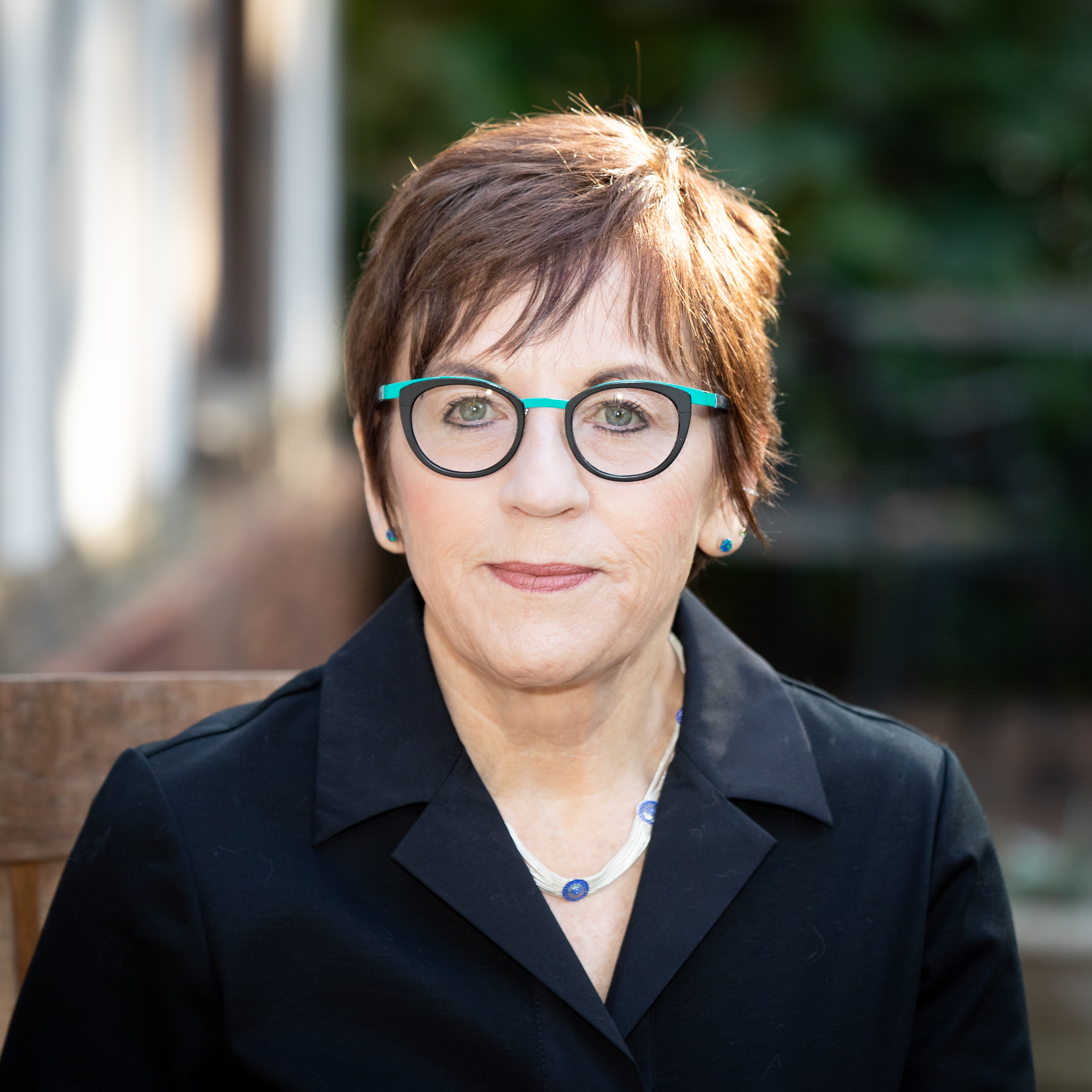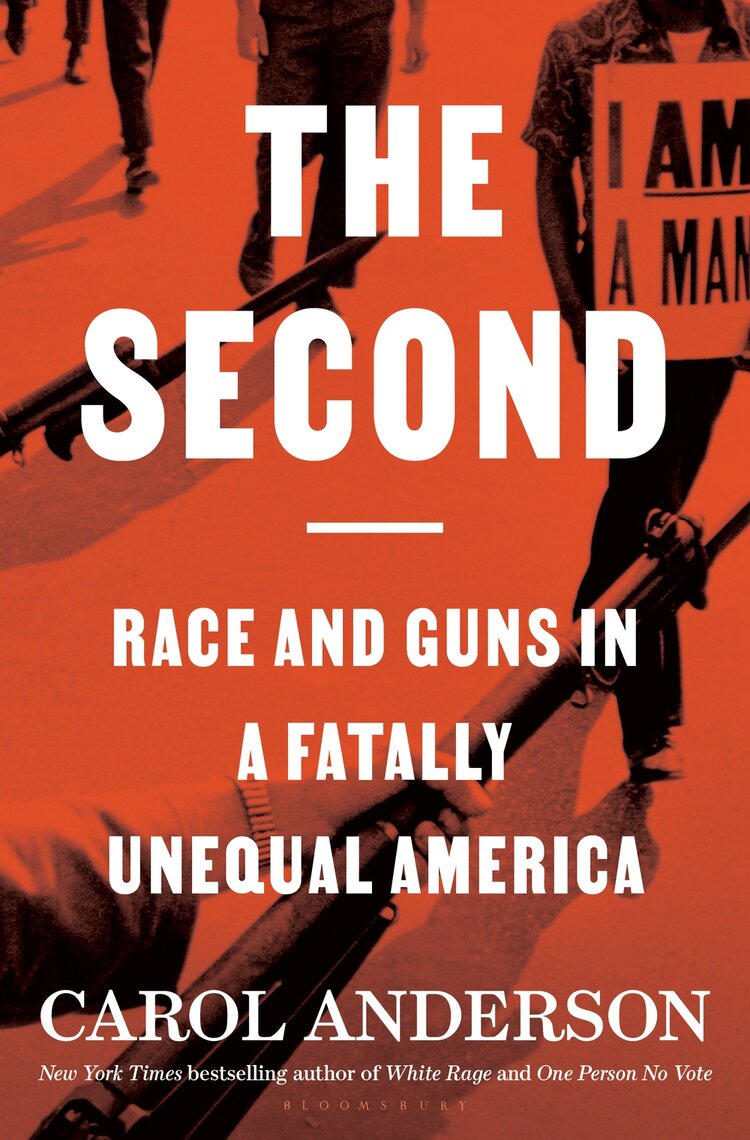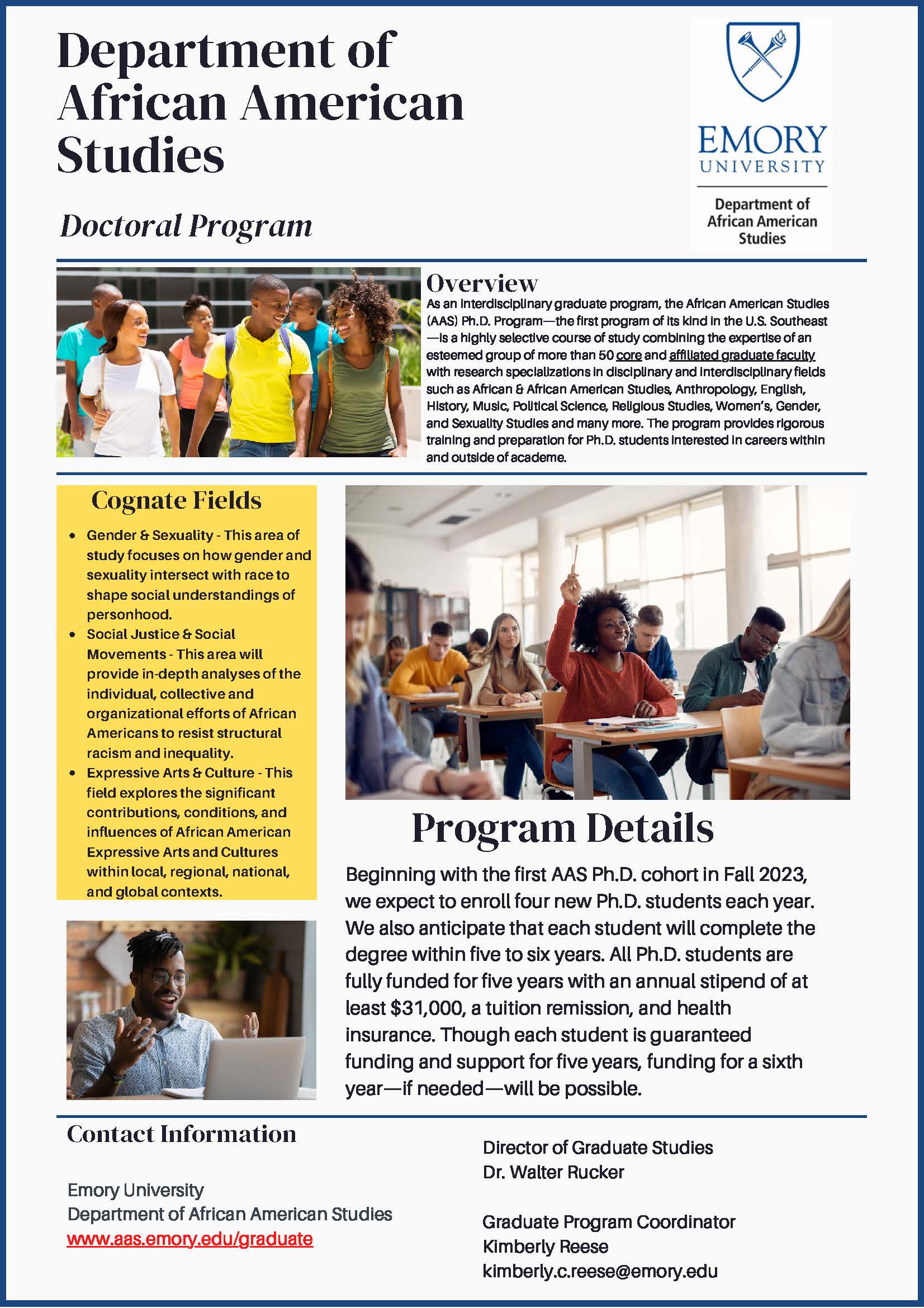Dr. Polly J. Price, Asa Griggs Candler Professor of Law, Professor of Global Health, and Associated Faculty in the History Department, recently appeared on MSNBC’s The Mehdi Hasan Show to discuss the COVID-19 pandemic in historical context. Price is the author of Plagues in the Nation: How Epidemics Shaped America, just published in May of 2022 by Beacon Press. Watch the clip of Price in the embedded video below or on YouTube at “Why Wasn’t America More Prepared For Covid-19?“
Category / Faculty
Dudziak Contextualizes Americans’ Detachment from U.S. Wars
Dr. Mary L. Dudziak, Asa Griggs Candler Professor of Law at the Emory University School of Law and Associated Faculty in the History Department, recently discussed her newest book in a Q&A with Tevah Gevelber of Responsible Statecraft. Dudziak argues that many Americans have long had a disconnect with wars fought in the name of their country, well before the aftermath of the Vietnam War (commonly seen as the origin of that disconnect). Dudziak also discusses how the consolidation of war powers in the executive branch, and specifically the hands of the president, has contributed to widespread detachment among American citizens from wars fought outside the U.S. Read an excerpt from their conversation below along with the full article here: “Why are Americans so unplugged from the wars in their own name?“
It’s common to point to the end of the military draft after the U.S. war in Vietnam as the point when most of the polity lost direct engagement with war. American civilians lost a more fundamental connection with war much earlier, however: when U.S. wars became foreign wars, after the Civil War and warfare with American Indian nations. Americans came to understand war in a visceral way during the Civil War. Battles happened in settled areas. U.S. civilians were war casualties. Family and friends of soldiers arrived at devastated battlefields looking for their loved ones, so they were not immune from the sensory experience of war.
Tevah Gevelber, “Why are Americans so unplugged from the wars in their own name?“, August 1, 2022.
Anderson Discusses Anti-Blackness and Gun Legislation on CNN
Dr. Carol Anderson, Charles Howard Candler Professor of African American Studies and Associated Faculty in the History Department, was quoted in a CNN article on the racialized dimensions of contemporary legislation related to gun possession and gun control. Anderson’s most recent book, The Second: Race and Guns in an Unequal America (Bloomsbury, 2021), interrogates the links between anti-Blackness and the second amendment throughout U.S. history. Read an excerpt from the article below along with the full piece: “The fight to curb gun violence without inflaming racial biases.”
The issue when it comes to gun control isn’t necessarily the law, according to Carol Anderson, an African American studies professor at Emory University. Sometimes, the issue is the enforcement of the law.
Brandon Tensley and Eva McKend, “The fight to curb gun violence without inflaming racial biases,” CNN, July 31, 2022.
“Let’s go back to the Bruen decision in New York, that horrible decision by the US Supreme Court,” Anderson said, referring to the high court’s ruling in June that struck down a century-old New York gun law and that observers suspect will unleash a wave of lawsuits seeking to loosen restrictions at the state and federal levels. “The amicus curiae brief from public defenders said, The NYPD has used this law to go after Black folks. Look at what this has done.”
Anderson, the author of “The Second: Race and Guns in a Fatally Unequal America,” said that, at the core, the problem was policing.
“That’s the component I don’t think is understood well enough,” she said. “We’ve got to clean up policing.
Until we take anti-Blackness seriously, we’re going to keep dancing around the issue.”
Anti-Defamation League Hosts Lipstadt on “Fighting Hate from Home” Webinar
The Anti-Defamation League hosted Dr. Deborah E. Lipstadt, Dorot Professor of Modern Jewish History and Holocaust Studies and the U.S. State Department’s special envoy to fight antisemitism, on their webinar “Fighting Hate from Home” in late July of 2022. In conversation with ADL CEO Jonathan Greenblatt, Lipdstadt discussed her work thus far in combating antisemitism around the world, including through trips to, and negotiations with officials in, Israel, Saudi Arabia, and the United Arab Emirates. Watch the full webinar above or on the link to the ADL’s YouTube page.
Emory Launches African-American Studies PhD Program
Emory has launched a new doctoral program in African American Studies, the first of its kind in the U.S. Southeast. The interdisciplinary program will draw on the expertise of more than 50 scholars across schools at Emory, including from the College’s Department of History. Dr. Walter C. Rucker, Professor of African American Studies and History, will serve as core faculty in the program and as the Director of Graduate Studies. The program will be built around four of the pillars of African American Studies: interdisciplinarity, intersectionality, community engagement, and transnationalism. The first cohort of four doctoral students is expected to begin in the fall of 2023. Read more information about the program on the AAS website, as well as in the following coverage in the press:
- “Emory establishes first African American studies PhD program in the Southeast,” the Emory News Center.
- “Emory University establishes first African American studies PhD in the Southeast,” Decaturish.
- “Emory University Launches 1st African American Studies Ph.D. Program in Southeast U.S.,” the Washington Informer.
- “Emory University Establishes First African American Studies Ph.D. Program At A Private University In The South,” Black Enterprise.
- “Emory University establishes first African American studies PhD in the Southeast,” WABE-FM.
- “Emory University launches African American studies program for PhD students,” TheGrio/Yahoo News.
Lowery Helps to Forge Relationships of Learning and Healing with Muscogee Nation
Dr. Malinda Maynor Lowery, Cahoon Family Professor of American History and a member of the Lumbee tribe of North Carolina, was one of fifteen Emory community members to travel earlier this year to Okmulgee, Oklahoma, to meet with members of the Muscogee Nation. Before the founding of Emory, Michelle Hiskey of the Emory News Center writes, the Muscogee “lived, worked, produced knowledge on, and nurtured the land where Emory’s Oxford and Atlanta campuses are now located.” The journey to Oklahoma was part of a broader Emory initiative, commissioned by President Fenves and co-led by Lowery, to memorialize Indigenous peoples who previously lived on land now owned by Emory, including through the development of “physical reminders and remembrance rituals on campus, such as a Muscogee (Creek) Language Path that highlights Muscogee language and knowledge.” Learn more about this endeavor, the Indigenous Language Path Working Group, on their website here. Also see the Emory News Center’s piece “In Oklahoma, Emory builds relationships with the Muscogee Nation,” which includes the quote from Lowery below.
“At Emory, we want to embrace a spirit of accountability,” said Malinda Maynor Lowery (Lumbee), Emory College of Arts and Science’s Cahoon Family Professor of American History and co-chair of the Indigenous Language Path Working Group. “But frankly, we’re not sure how to do that without the direction of the Muscogee Nation.”
“Who was Atticus Finch?”: Crespino Offers Insights
Dr. Joseph Crespino, Jimmy Carter Professor of History, was featured in an Emory News Center piece centered on the question “Who was Atticus Finch?” In 2018, coinciding with the publication of Crespino’s most recent book, Atticus Finch: A Biography (Basic Books), Emory University’s Stuart A. Rose Manuscript, Archives and Rare Book Library acquired a collection of correspondence and memorabilia from author Harper Lee. The correspondence within that collection shed light on the perceived discrepancies between Atticus Finch as represented in Lee’s famous novel To Kill and Mockingbird and the more recently-published Go Set a Watchman. Learn more about how Crespino’s research contributes to our understanding of this seminal character in U.S. literary history through the Emory News Center article as well as the video below.
Anderson Cited in ‘Salon’ Article on Links between Abortion, Racism, and Guns
Dr. Carol Anderson, Charles Howard Candler Professor and Chair of African-American Studies, was cited in a Salon article examining the links between abortion, racism, and guns. The piece, “Abortion, racism and guns: How white supremacy unites the right,” was written by Tamara Kay and Susan L. Ostermann. Kay and Ostermann offer historical context for the Supreme Court’s overturning of the precedent set by Roe v. Wade, particularly how white supremacy shaped early abortion criminalization. They draw a direct parallel to the anti-Black dimensions of the Second Amendment, the topic of Anderson’s most recent book, The Second: Race and Guns in a Fatally Unequal America (Bloomsbury, 2021). Read an excerpt from the Salon piece citing Anderson below along with the full article here.
The Second Amendment also has white supremacist roots. When it was ratified in 1791, many states had laws to prevent enslaved and free Black people from possessing or bearing arms. Prior to the Civil War, Black people were targeted by armed slave patrols, and after the war and the failure of Reconstruction, Black Codes enacted across the Jim Crow South prohibited formerly enslaved people from possessing guns. Carol Anderson, chair of African American Studies at Emory University and author of “The Second: Race and Guns in a Fatally Unequal America,” argues that long after the abolition of slavery, the Second Amendment has been used against Black people: “(P)ervasive anti-Blackness, even after the civil rights movement, turned the Second Amendment’s law for protection — the castle doctrine, stand your ground and open carry — against African Americans.” She concludes that the Second Amendment “is lethal; steeped in anti-Blackness, it is the loaded weapon laying around just waiting for the hand of some authority to put it to use.”
Dudziak Weighs in on Potential Reverberations of Dobbs v. Jackson for GPB
Dr. Mary L. Dudziak, Asa Griggs Candler Professor of Law and Associated Faculty in the History Department, recently weighed in on the possible implications of the Supreme Court’s summer 2022 decision in Dobbs v. Jackson, the ruling that overturned Roe v. Wade. A leading scholar of civil rights and constitutional law history, Dudziak spoke about the reverberations of Dobbs in a Georgia Public Broadcasting article titled, “LGBTQ Georgians are staring down an uncertain future in a post-Roe America.” Read an excerpt from the article below along with the full piece here.
Emory professor Mary Dudziak said we are now in a perilous era of the Supreme Court — and their decisions will largely effect the legal landscape across states with conservative-leaning state governments.
“What would happen depends on two different kinds of things: one is what the federal courts are going to do and the other is what’s happening in state legislatures,” she said. “The boundaries of what state legislators can do is set by constitutional law. What happens on the ground is driven by state law in Georgia. A legal change has an effect on setting the terrain on what kinds of state laws would be unconstitutional. Anti-gay marriage laws are invalid under Obergefell. If that’s overruled, Georgia doesn’t have to pass a gay marriage law.”
Chira Wins Agricultural History Society Prize for ‘AHR’ Article
Dr. Adriana Chira, Assistant Professor of Atlantic World History, has won the Agricultural History Society’s Wayne D. Rasmussen Award for the best article on agricultural history not published in the journal Agricultural History. Chira’s article, “Freedom with Local Bonds: Custom and Manumission in the Age of Emancipation,” was published in the American Historical Review in September of 2021. Read the abstract of Chira’s piece below and learn more about the awards offered by the Agricultural History Society here.
“Throughout the first half of the nineteenth century, across Latin America, expansive rural communities of African descent forged freedom from below in the shadows of highly exploitative extractive economies. Their efforts push us to reconsider established genealogies of the age of emancipation. Freedom through conditional manumission and enslaved people’s reliance on social networks to obtain it opened the door to custom inside first-instance district courts in such areas. Judges turned to vernacular understandings of rights and obligations as they clarified the ambiguous statuses of the conditionally freed for which written law offered few provisions. Through manumission and legal actions to defend freedom, peasants of African descent on the margins of the global economic system grounded their rights in state structures as local custom. Black freedom within such territories represents a mode of community governance that remains invisible if studied by focusing on mobility or nation building. Seen from a place such as Santiago de Cuba, the nineteenth century was not just a time when Africans and Afro-descendants pursued social inclusion through ideologies of national citizenship and diasporic connections. It was also a time of freedom through membership in local communities, which women and families were especially instrumental in forging.“



